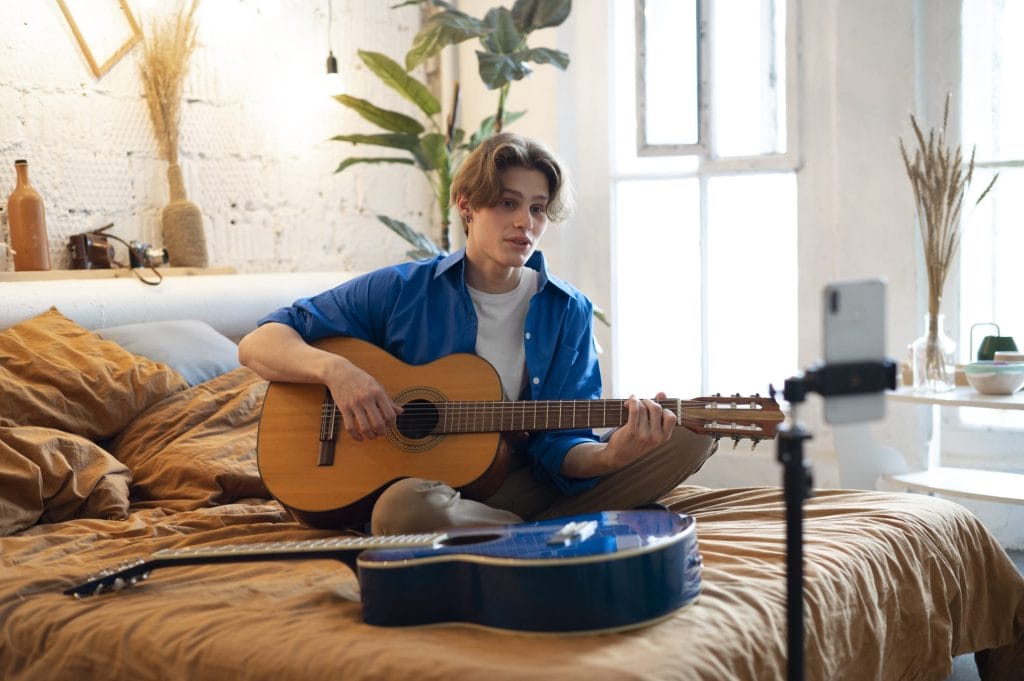
How to Promote Your Dorm-Room-Recorded EP to Local Radio Stations
Recording music in your dorm room used to be a pipe dream. Now, with a decent mic, free software, and creativity, you can produce an EP that sounds surprisingly polished. But finishing the tracks is just half the battle. The next challenge? Getting your songs played on local radio. Even in the age of streaming, local stations still matter. They help you connect with real people in your community—listeners who might become fans. Here’s how to get your dorm-born tracks on the airwaves without selling your soul or breaking the bank.
Clean Up Your Tracklist First
Before you send your EP to any radio station, check the sound quality. Play each track from start to finish. Listen with headphones and speakers. Make sure your vocals sit well in the mix. Remove background noise and clean up any static. Avoid songs that clip or distort. Cut long silences at the beginning or end. Your music should feel smooth and complete. It doesn’t need to sound like a chart hit, but it must be listenable. Aim for clarity, balance, and confidence.
Craft a Simple But Sharp Pitch
Radio stations get dozens of pitches weekly. Make yours stand out by keeping it short and specific. Don’t write a novel. Do this instead:
- Subject line: “New Local EP Submission – [Your Name]”
- Greeting: Use the music director’s name if possible
- Intro: Mention you’re a local artist with a new EP
- Link: Include a streaming link
- Details: Say where and when it was recorded. Mention your school if it’s relevant
- Ask: Politely request they give it a listen and consider airplay
- Close: Thank them, include your contact info
Get Help With the Details
Crafting a pitch, writing bios, and organizing files takes time. If you’re also juggling exams and projects, you might need a little support. That’s where the service Edubirdie can really help. It connects you with professional writers who can help write your artist bio, press release, or even clean up your lyrics. Their services are fast, confidential, and tailored to your exact request. Whether you need an essay edited or a bio written overnight, they’ve got your back—especially when time’s tight.
Find the Right Radio Stations
Not every station plays local music. Some won’t touch independent releases. That’s fine. You only need a few yeses to build momentum. Start by checking your town’s FM dial. Look for college-run stations and community broadcasters. They’re usually more open to unsigned artists. Visit their websites and look for these:
- Submission guidelines
- Music director contact info
- Genres they play
If you’re unsure where to start, focus on college radio. These stations exist to support new voices and have weekly slots dedicated to local music.
Offer Value
You’re not just asking for a favor. You’re offering them fresh content. Highlight what makes your EP unique. Maybe you recorded vocals under a blanket in a dorm closet. Maybe one track samples ambient noise from campus halls. Lean into the authenticity. You can even offer to come in for a short interview, play live in-studio, or record a station ID (e.g. “You’re listening to 95.5 FM and this is [Your Name]”). DJs love that stuff—it creates variety and supports local culture.
Keep Track of Submissions
Stay organized. Use a simple table like this:
| Station Name | Contact | Submission Date | Response | Notes |
| WXDU 88.7 | Liz T. | April 1, 2025 | Waiting | Emailed pitch + one-sheet |
| KTRU 91.7 | Chris M. | April 3, 2025 | Yes | Airplay on local show, interview TBA |
| WRUR 88.5 | No Name | April 5, 2025 | No reply | Resend in 2 weeks |
Update this every time you send or hear back. You’ll avoid repeat emails and stay on top of follow-ups.
Keep Promoting Elsewhere
Getting airplay is just one piece of the puzzle. Make noise on socials. Tag stations when your song airs. Post BTS dorm-studio pics. Go to local shows and hand out QR codes. A few other ideas:
- Submit to music blogs
- Enter student showcases
- Network with other student musicians
- Upload acoustic versions to YouTube
- Ask DJs for feedback, even if they reject your music
Don’t Stop After One Try
Rejection is part of the game. Most artists get ignored before they get noticed. Stay polite, but persistent. Contact again if you don’t hear back in 2–3 weeks. Release more music, even if it’s just one new song every few months. Local radio loves artists who show commitment.
Conclusion
Your dorm room might not look like a studio, but that doesn’t mean your music isn’t ready for airplay. Local radio stations still have a real impact. They champion homegrown talent and connect you to your city. With a clean EP, a smart pitch, and a bit of hustle, you can get your songs on the air. Every artist starts somewhere—and this could be your first real step.



